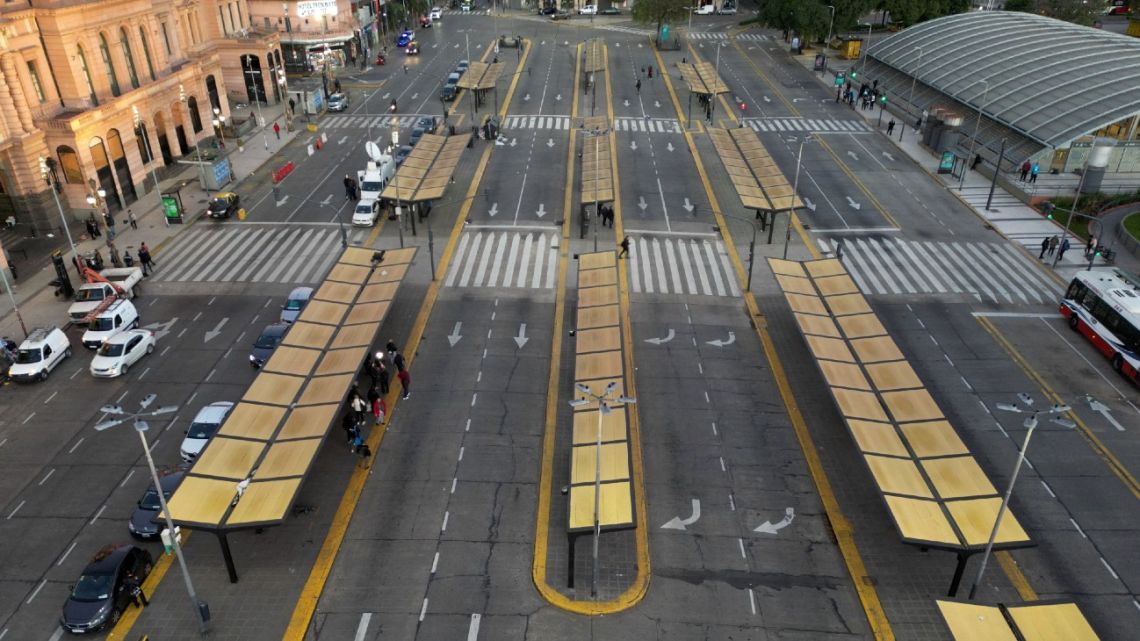President Javier Milei’s government has announced it intends to privatise the first major company of its 10 months in office, Trenes Argentinos Cargas, the rail sector’s main state-run cargo firm.
In an announcement, the government said Wednesday that it would privatise the company, also known as Belgrano Cargas y Logística SA.
“The company operates 7,600 km of rail lines,” which will “now be concessioned to private parties,” said the government.
Ownership of the rail-lines and land will remain with the state, the President’s Office said in its press release.
Trenes Argentinos Cargas was listed in Milei’s sweeping ‘Ley de Bases’ mega-reform law as subject to privatisation or concession. If the state firm is sold off, this would be the first privatisation of a rail firm in the Milei era.
“As pointed out by President Milei [when he was inaugurated] on December 10, everything that can be privatised will be privatised,” declared Presidential Spokesman Manuel Adorni at a press conference.
The spokesperson described the company as “obscenely deficit-ridden,” stating that taxpayers “had to contribute US$112 million” for the “sustenance” of its “oversized staff of 4,429 people.”
Adorni did not provide additional details and did not take questions from journalists – as was the case on Monday, when he confirmed the dissolution of the AFIP tax bureau.
Trenes Argentinos Cargas transports produce and products nationwide. With three main rail lines, it travels to 16 provinces nationwide moving agricultural products, heavy materials, rock, wood, minerals, metals and consumer products.
The announcement comes a week before a national transport strike claiming against the fiscal adjustment anticipated by the government.
Adorni criticised the firm’s management, stating that the “the amount of tonnes the Belgrano Cargas can transport has stayed frozen since 2009."
He added: “In order to calculate the size of the deficient state of the cargo railway system, the average distance transported today is 500 kilometres, the same average transported 50 years ago. In half a century we haven’t progressed at all.”
The La Nación newspaper said in a report that 94 percent of cargo transport in Argentina takes place by truck, with only six percent moved by train via Belgrano Cargas.
Privatisation process
The privatisation process will be led by Diego Chaher, head of State Companies Transformation Agency, dependent on the Ministry of Economy.
Chaher explained that the state firm’s rails, locomotives, carriages and workshops are to be concessioned. The sell-off will also include the transfer of employees.
“The land and rails continue to be the property of the State,” he claimed. “Thus, all railways will be concessioned in the private sector, allowing this model to triple the transported cargo volume since the number of trains and their frequencies will be increased.”
The scheme is an open-access infrastructure concession – that is, the concessionaire will have the obligation to allow the transfers of all operators who wish to transport on those rails, in order to avoid a monopoly.
“The state is not a businessman, which is why all state companies will be opened up to private capitals and subjected to procedures to restrict and put a definitive end to the state share in them,” argued Chaher.
“The company Belgrano Cargas as it operated so far, no longer exists," he concluded.
Railway union leader and national deputy Mónica Schlotthauer denounced the move, stating that “privatisations have already failed, proving in the most cruel way what emptying, corruption and death mean” – a reference to the Once tragedy, a train crash in 2012 which left 51 dead and over 700 wounded.
Not the first time
Belgrano Cargas is a wide-ranging rail line for the transport of goods from different points of the country, formerly in the hands of the Macri Grup which Cristina Kirchner “nationalised” claiming “irregularities” in the concession.
Argentina has a background of mass privatisations of the railway system, most notably in the 1990s, when then-president Carlos Menem sold off much of the train network, which ended in a deteriorated quality of service, the closing of stations and entire stretches of track.
In the 2000s and 2010s, the State regained control of several of those lines.
What today is Trenes Argentinos Cargas was formerly in the hands of the Macri Group and was nationalised by the Cristina Fernádez de Kirchner government citing “irregularities.”
The creation of Belgrano Cargas y Logística is a consequence of a 2008 decree, which ended the concession which since the late ‘90s the company Belgrano Cargas Sociedad Anónima had over Ferrocarril General Belgrano.
In 2013, Belgrano Cargas y Logística SA was founded to unify the three main cargo rail lines (Belgrano, San Martín and Urquiza). In 2016, it was renamed Trenes Argentinos Cargas.
– TIMES/AFP/PERFIL




